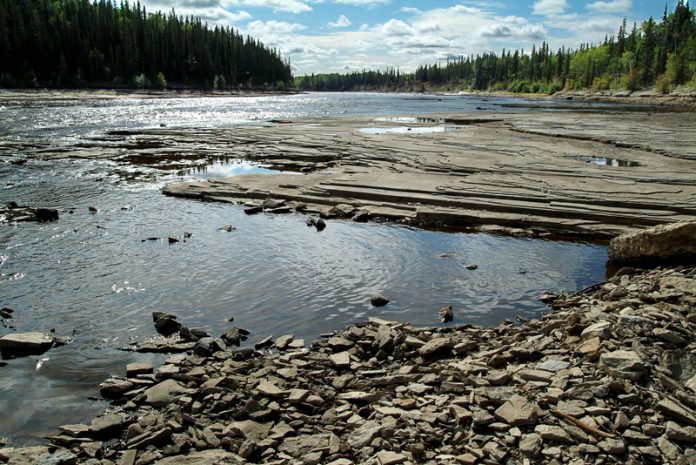The Department of Education, Culture and Employment, Government of the Northwest Territories details the importance of embracing culture and heritage
Culture and heritage are powerful components of any society. Culture is the living expression of our values, and heritage encompasses the tangible and intangible things we wish to bring to the future. Together, culture and heritage help us adapt to changing times. Culture keeps our past alive and fosters pride in where we have come from and where we now live. Culture and heritage define us, tell others who we are, and provide a solid foundation for understanding our place in the world.
In Canada, our cultural values include equality, religious freedom and inclusiveness. These values are rooted in our diversity, beginning with the Indigenous peoples of Canada, and then with people from across the globe who have come to live here. While our diversity makes Canadian identity difficult to define, it is what instils in us a sense of pride and helps us promote tolerance. Recently, we have paid particular attention to the need for reconciliation between Indigenous and non-Indigenous Canadians.
Canada’s northern territories (Yukon, Nunavut, and the Northwest Territories), are marked by large geographic size, unique and sometimes harsh climate, and a high proportion of Indigenous peoples compared to the rest of Canada. The Northwest Territories (NWT) for example, covers 1.35 million square kilometres with a total population of just over 41,000. There is no single Indigenous “culture” in the NWT; the Dene, Cree, Métis, and Inuvialuit people, which comprise approximately 50% of the population, are characterised by their linguistic and cultural diversity. Indigenous knowledge about how to survive and, indeed, to thrive and live harmoniously in our northern landscape has been passed on for generations, and helps us navigate the challenges of present day. The other 50% of the territory is comprised of people from a wide variety of cultural and ethnic backgrounds, creating a vibrant multicultural community.
Raising the importance of the culture and heritage of Canada and the NWT is critical. When people are connected to culture and heritage, we use our knowledge of the past, in the context of the present, to make wise choices for the future.
The primary role of culture and heritage resides with families and individuals. Yet, through its strategies and resources, the Government of the Northwest Territories (GNWT) is a steward, collaborator, and contributor to culture and heritage.
Since 1997, the GNWT has had a policy that acknowledges the important and essential role that Indigenous traditional knowledge plays in helping to make present-day decisions about the land and natural resources. More recently, the GNWT created a Culture and Heritage Strategic Framework, whose purpose aligns the work of all government departments around a shared set of cultural principles until 2025. The principles are based on a blend of Indigenous and non- Indigenous cultural values. The Framework explicitly recognises that culture and heritage both influence, and are influenced by, the work of public government.
Education in the NWT has a strong cultural component, with a specific commitment to having curriculum and programming reflect the perspectives and values of the Indigenous people of the territory. Two foundational frameworks, Dene Kede and Inuuqatigiit, are used to guide all curriculum development.
All NWT educators receive 2 days of cultural orientation each year as part of the Department of Education, Culture and Employment’s ongoing commitment to supporting the professional learning of teachers, providing cultural context for all learning in the classroom.
Cultural perspectives are built into a wide range of curricula, including science and, particularly, language arts, social studies and northern studies. The latter course is a mandatory high school course for all students, where they explore their own Northern identity, the history, land claims, economy and major issues facing our territory.
A major directive funds cultural and language programming in all schools in the NWT, and supports on-the-land learning activities.
Operated by the GNWT, the Prince of Wales Northern Heritage Centre acts as the territorial museum and archives, as well as housing the offices of the Culture and Heritage Division including the archaeology program, geographic names, and arts and culture funding. Through exhibits, public programs (guest lectures, presentations, theatrical performances), and school programs, the Centre plays a central role in presenting, preserving, and promoting the cultures and heritage of the NWT.
We take an inclusive view of culture – encompassing how culture interplays with wellness, education, the economy, the natural environment, the arts, and traditional practices; and inclusive of the many cultures that have contributed to the fabric of NWT society. We see our primary role as cultivating strong relationships with NWT residents, portraying culture and heritage from the point of view of the people who are the subjects of our programs.
With information provided by staff from the Department of Education, Culture and Employment, Government of the Northwest Territories:
Lynn White, Strategic Planner, Culture and Heritage
Sarah Carr-Locke, Director, Culture and Heritage
Tom Andrews, Territorial Archaeologist
John Stewart, Director, Instructional and School Services
Department of Education, Culture and Employment
Government of the Northwest Territories











